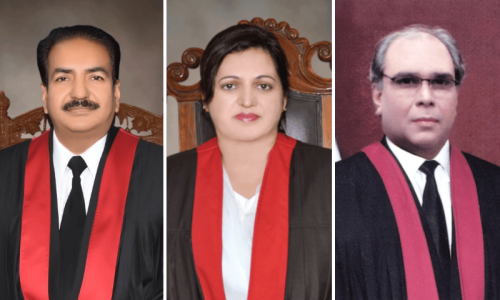
Missed Translations: Meeting the South Asian Parents Who Raised Me
By Sopan Deb
Folio, Lahore
ISBN: 978-9697834198
272pp.
Sopan Deb’s debut book, Missed Translations: Meeting the Immigrant Parents Who Raised Me, takes the immigrant experience to a new level.
Seeing the hollowness of the clichéd jokes and determined to tackle the multi-layered experience of being the child of immigrants, Deb goes beyond the usual ‘smelling of curry’, ‘fresh off the boat’ tropes and contextualises it. He does indulge in it when he describes wanting to be like the white families who are the “normal family” unit, but he adds his own dimensions. That is what makes his story stick in your mind and, actually, unpack one’s own child-of-immigrant experience.
Deb was born in the United States to Indian immigrants and is a journalist and stand-up comedian. Humanising his parents’ stories, he breaks down the stereotypical concept of a “brown family” unit and surprisingly, as it turns out, there is very little difference between an immigrant family and a white, “normal” family. Through revealing each parent’s behaviour and mapping out his own relationship to them as it develops over the years, it appears that there are three experiences being explored: Deb’s parents’ individual stories and then, through them, his own until he reaches university, and then he begins to carve out his own story.
Weaving in technology, travel, experiences and more, a rich memoir unpacks the immigrant experience and holds many lessons for all readers
Deb shatters the myth that we define ourselves by our parents’ lives, especially the assumption that children of immigrants simply fill the worn out shoes and cardigans of their parents, and the cycle repeats. Instead, he details how he actively shook off all that would define him in an attempt to create his own identity, one in which he defines how life is to be lived, and slowly begins to successfully carve out a career in which he finds his own unique voice.
Still, memories and experiences mean that there are aspects that linger on — such as uncomfortable conversations acting as a reminder that while he may run as far as he can, the world is round and, sooner or later, he will face what he left behind. Yet he could never really get beyond the mould of the immigrant parents — two people clearly unhappy and dissatisfied, living a life of existence and resignation. Who were they, really? As individuals, who were these people that had been put together in a situation where there were no winners?
Deb writes with a rawness about his parents as he peels back layers of history to discover who they are. An emotional journey, the evolution of his parents as individuals is astonishing and heartbreaking. Packed with surprises, twists and turns, Deb’s book connects so many dots that it becomes easy for one to think this is a reflection of so many stories, transcending the limiting category of ‘immigrant experiences’ to the liberating ‘human experience’.
While there are moments where one cheers the relationship that is revealed between Deb and his father, one finds the relationship with his mother more devastating, fragile and yet beautiful. How easy, how convenient it is to break a woman, yet the respect for life she will have is beyond comprehension. To live a life with unspoken burdens, to have lived a life where the past defines you to the point where the bond between a mother and child suffers — it is a pain that remains misunderstood and not fully comprehended.
A significant portion of the South Asian experience, at least from what I have seen among brown friends and my own family members, is about seeming a certain way to give off the impression of stability and status, at the expense of emotional needs. — Excerpt from the book
What Deb discovers about his mother hits a new level of empathy and, through his words, one feels the fog lifting, except there are no sunny skies. The truth isn’t pretty, but it is so necessary. And then those moments of tenderness when his mother tries to support her son when he tells her he wants to propose to his girlfriend — that glimmer of hope for joy, for her son, burns so passionately and brightly, it is heartbreaking.
Ultimately, all families are messy. Many never even try to pick up the broken pieces to see what kind of a mosaic can be formed. But in this case, Deb shreds all concepts of time and space. He writes this memoir as a crystallisation of two experiences of life: one with his parents, focusing on how they formed their relationships to give him the life he longed to shed; and another life that he forged himself, and in which he actually began to understand the former.
Weaving in technology, travel, experiences and more, Missed Translations is a rich memoir that holds many lessons for all readers. Tackling tricky questions on universal themes including marriage, love and forgiveness, it leaves one reflecting on how multi-dimensional humans really are.
Personally, as a female who has tried to break down the myths of having the honour of being a ‘Desi Mum’, the validation came in like a dam that had been shattered. Children are known to absorb so much and, of course, at some point, it does come pouring out in one form or another. For Deb, it was stand-up comedy and the realisation that stories aren’t meant to be caricatures of what essentially is your life but, in fact, are meant to be told.
Missed Translations is a master class on how the way you tell a story reveals how well you know your material — the nuances, the people, the beauty of it all. And when you do, the magic of laughter, pure laughter at the understanding of the complexities of life, will follow.
The reviewer is a Lahore-based writer. She tweets @mfhusayn
Published in Dawn, Books & Authors, July 18th, 2021














































